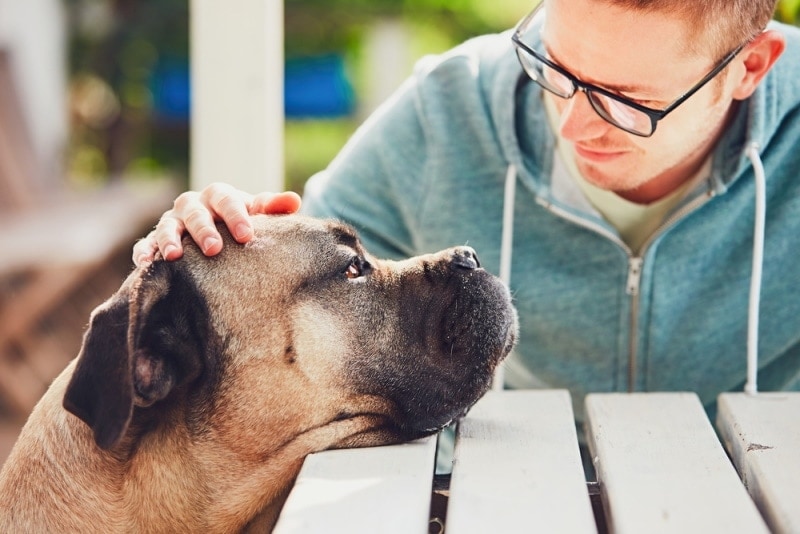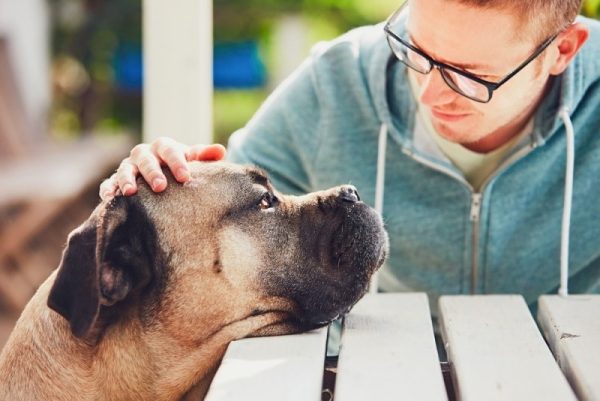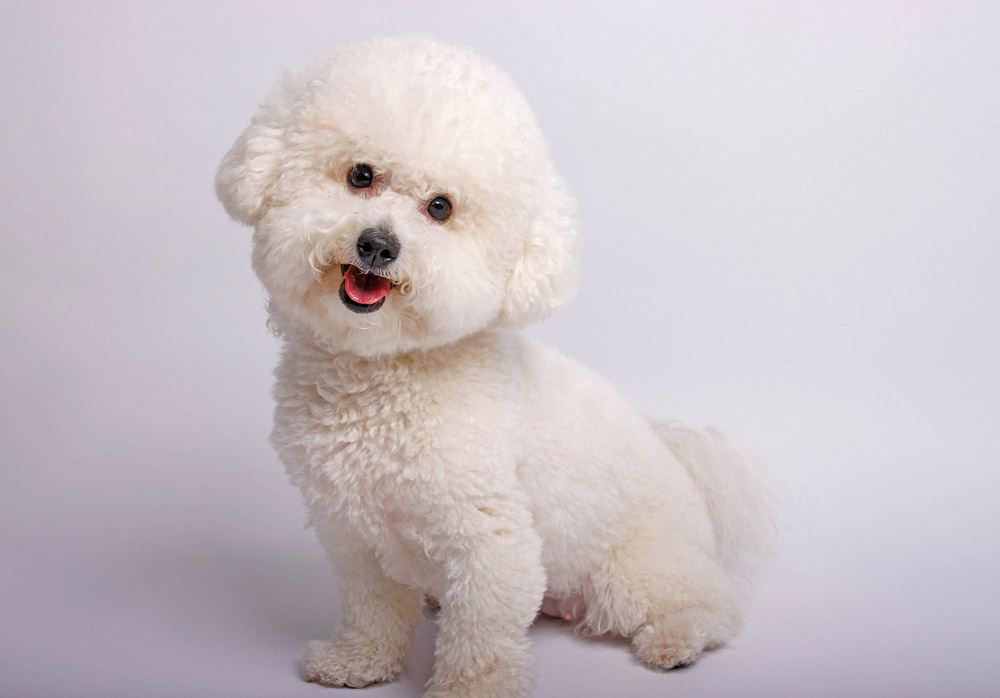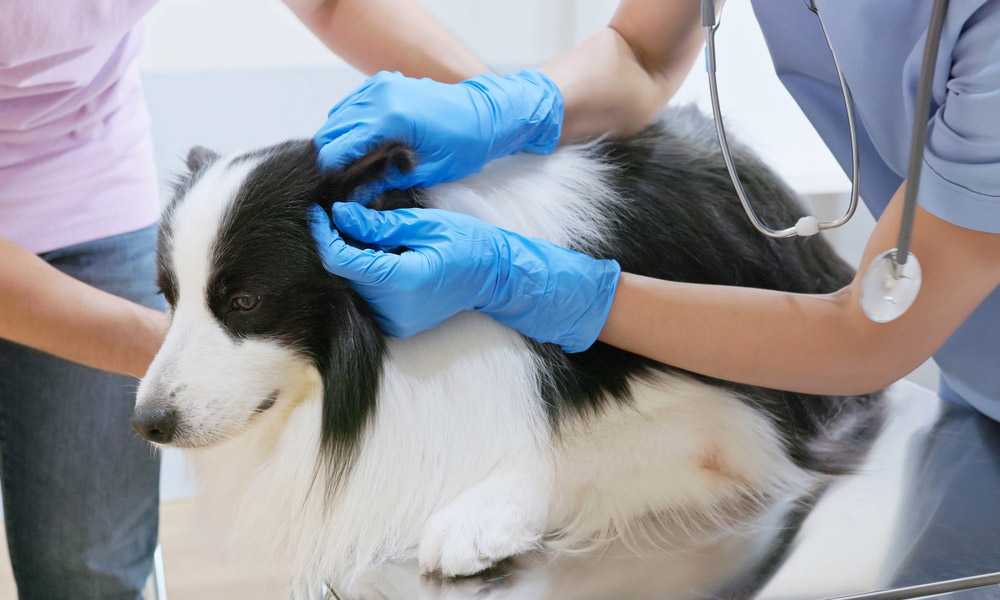Dominant, territorial, and downright scary, the Cane Corso is an aggressive, protective dog. And it doesn’t exactly fall into the “cute pup” category. However, these mighty guardians do have a soft side, and they are, indeed, very affectionate. More than that, Cane Corsos get attached to their owners and like to cuddle to express their love. The same can’t be said about outsiders, though.
Unless properly introduced, this breed isn’t too friendly toward strangers (people or other dogs). So, how do you train these loyal, intelligent, and hardworking dogs? What does cuddling with a gentle giant like a Cane Corso look like? Should you adopt one if you’re a first-time dog owner? You’ll find all the answers in this guide!
War Dogs Turned Livestock Guardians
The Cane Corso is a fearless protector. It’s confident, noble, and loyal to its family. And while this breed was only recognized by the AKC in 2010, it’s been around for much longer. Bred by the Romans to serve as war dogs, the Italian mastiffs never shy away from tough challenges. When the Roman Empire fell, they turned into the perfect watchdogs: loyal, imposing, and stronger than most.
In Latin, Cane Corso means “guardian dog”, and that’s exactly what you’ll get! These dogs reach 28 inches in height and weigh over 110 pounds. So, if you’re looking for an intelligent, devoted, and highly protective dog to join the family, the Corso will be a great pick. But, to turn it into an obedient yet happy pet, you will have to know your way around the breed.
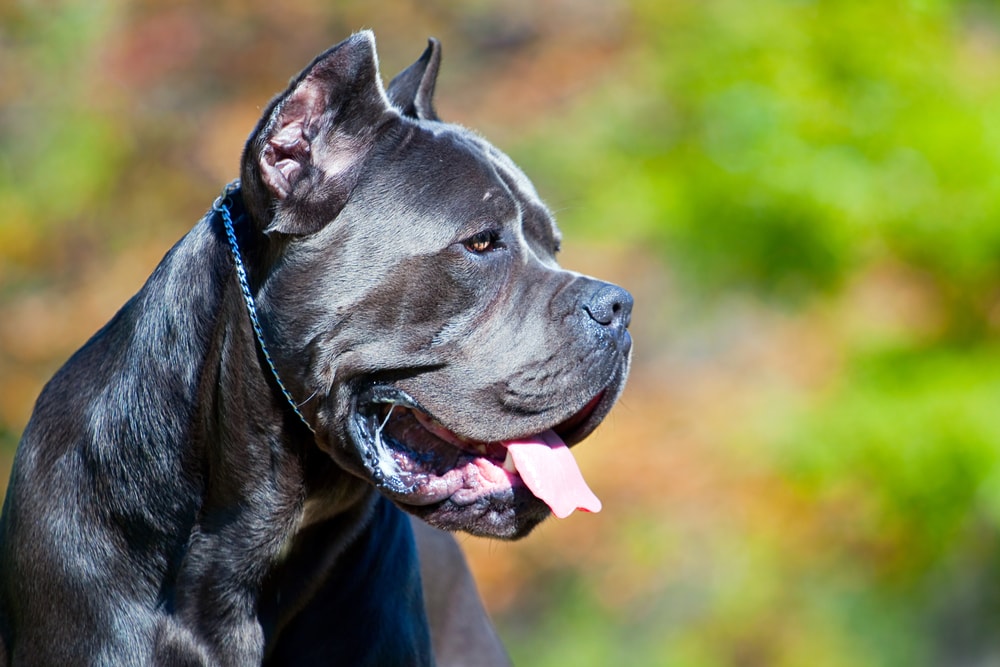
Cane Corsos: Giants With Gentle Hearts
It takes one look at these big, muscular dogs to know they mean business. If you’re a stranger and try to sneak into a house or property guarded by a Corso, you’ll instantly get caught! Thanks to their loyal nature, the Italian mastiffs aren’t afraid to put their own lives at risk to save their owners. So, any human or animal that poses a threat to its family will have to deal with this gigantic dog first.
That doesn’t mean Cane Corsos don’t express their feelings—on the contrary! They are more affectionate than most dog breeds and aren’t afraid to show it. But, this only applies to a short circle of humans that they trust. Thus, if you’re the proud owner of such a dog, be very gentle with it; otherwise, you might hurt its feelings. Despite the formidable size, this breed needs its fair share of love!
Can You Really Cuddle With a Cane Corso?
Yes, you most definitely can (and should)! Intensely loyal to people in their own family yet indifferent or aggressive against any other living creature, these majestic dogs rely heavily on positive reinforcement from you to live happy, fulfilled lives. And what better way to show your appreciation than through cuddling? Now, a person that’s never had the privilege of raising a Corso might be a bit intimidated by the idea of hugging it.
That’s not the case for someone that’s been living side by side with it for many years, though! This is important: Cane Corsos tend to get in sync with whatever mood you’re in.1 More than that, if you’re sad or joyful, they often think it’s their doing. These dogs take a while to warm up to someone, but once they do, that bond is unbreakable. They’re not clingy, however, and do need some alone time.
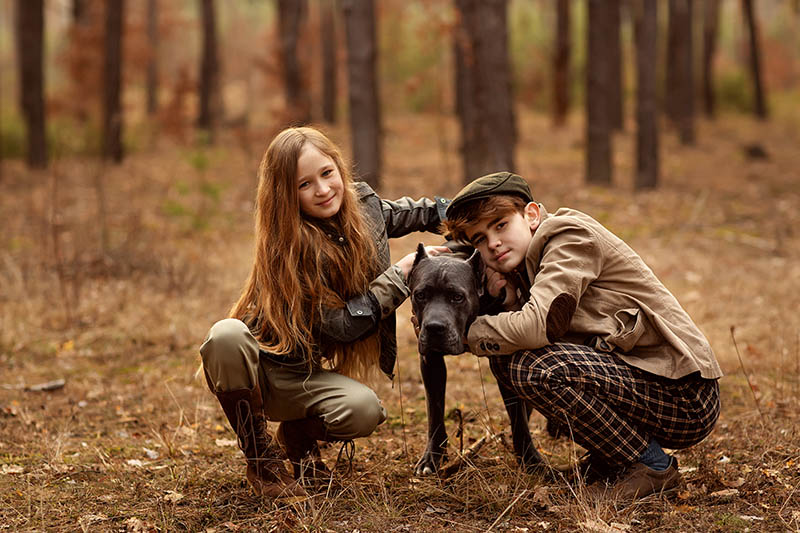
Are These Dogs Good for Families?
Cane Corsos seek companionship and affection and flourish when the connection with their owners is strong. So, in that regard, yes, they’re great dogs for a family. But you will have to put long hours into training an Italian Mastiff (preferably while it’s still a pup). The goal here is simple, yet not always easy: you need to establish yourself as the alpha for the Corso to follow your lead.
It’s a moderately playful, open, and adaptive breed with an average barking level and more energy than most dogs of its size. Yet, it will only accept strangers if you train it accordingly (more on that next). If not, the Corso will be like a brick wall against intruders. Summing up, Italian mastiffs are great family dogs, but only when they’re disciplined.
What About Children?
This breed is affectionate with little kids and highly protective of them. That doesn’t mean you can leave them alone with the dog, though. Children often don’t understand the difference between playing with a Corso and frustrating it. For example, trying to climb the dog and ride it like a horse can hurt the pet’s back. More importantly, that might provoke the dog and make it bite the kids.
So, although these dogs are big fans of companionship and do a great job of protecting their owners from outsiders, they are NOT children-friendly. You should only consider inviting a Cane Corso into your home if every single person in the family is a grown-up and knows exactly how to treat this big, aggressive, affectionate beast.
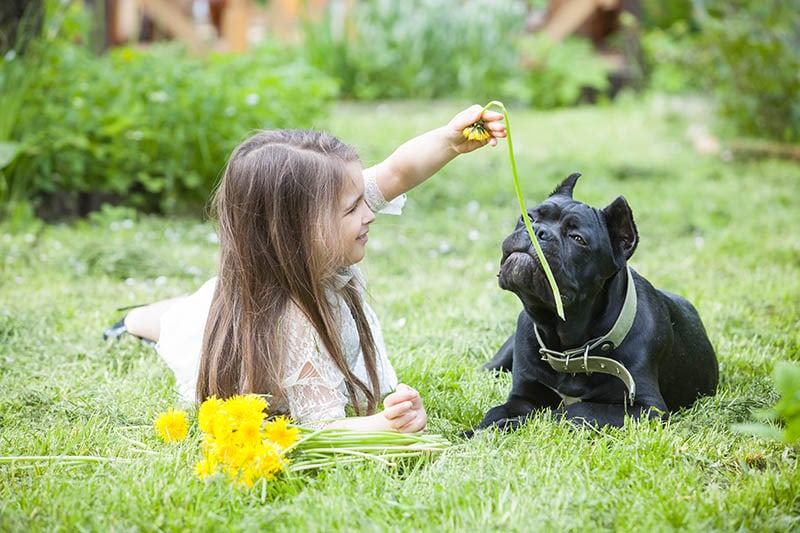
Should A Cane Corso Be Left Alone?
If you have a strong bond with the dog and play/exercise with it every day, then you can leave it alone for 4–8 hours. That said, when this breed doesn’t get enough mental stimulation or physical activity, it may quickly turn into a destructive pet. That’s why experts recommend starting crate training at a young age. The good news is, Corsos don’t feel cramped up indoors.
Small apartments are not the best place for these dogs, though, especially if you don’t train with them outside for at least 30–60 minutes. And one more thing: Corsos are a large breed. They need lots of space on the floor or the couch and like to sit/lean on people they trust. Also, they don’t do well in multiple-pet households. Please consider this before you adopt an Italian Corso.
How Do You Train a Cane Corso? A Quick Guide
To achieve the best results and strengthen your relationship with a Corso, you have to be a strict yet gentle trainer. This breed doesn’t handle harsh punishments well—that’s the most important thing to remember. Instead of being rough with it, try a different approach. Be patient, instructive, and ready to treat the dog for obedience. Also, early socialization is a must.
And don’t worry: by turning it into a well-mannered, open-hearted dog, you won’t rob it of its dominant, protective nature. While Cane Corsos are eager to please their owners, they still need to be disciplined (again, in a soft manner). In simpler words, show the dog who’s the boss while being respectful. To keep your four-legged friend fit, exercise with it for 1–2 hours daily. This can be a walk, run, or hike.
Here’s a recap of what to expect from these magnificent dogs:
- Larger than average, weighs up to 110 pounds
- Bred by the Romans as war dogs and guardians
- Affectionate, create a strong bond with their owners
- Eager to please, yet intelligent and self-willed
- Sensitive, can get offended during training
- Don’t take lightly to strangers (unless socialized)
- Not very patient around little children
- Aggressive, highly territorial, and protective
- Rarely bark, intimidate strangers with their stance
- Prefer to corner intruders instead of biting them
Nutrition: Feeding a Cane Corso
High-quality dog food is the best diet for a Cane Corso. But before you feed it anything, run the menu by a veterinarian. The reason: at different ages (like when it’s a pup, a mature dog, or a senior), the Corso will need specific food. If you’re good in the kitchen, do consider cooking the food yourself. This way, it will be easier to keep the dog healthy and in shape.
Think about the treats as well. True, it’s important to reward your pet with treats. On the downside, obesity might be right around the corner, especially for a dog prone to gaining extra weight. Also, don’t forget about water. Ideally, the dog should always have quick, easy access to a big bowl of fresh water. Just make sure to keep the portions small to avoid Gastric dilatation-volvulus.
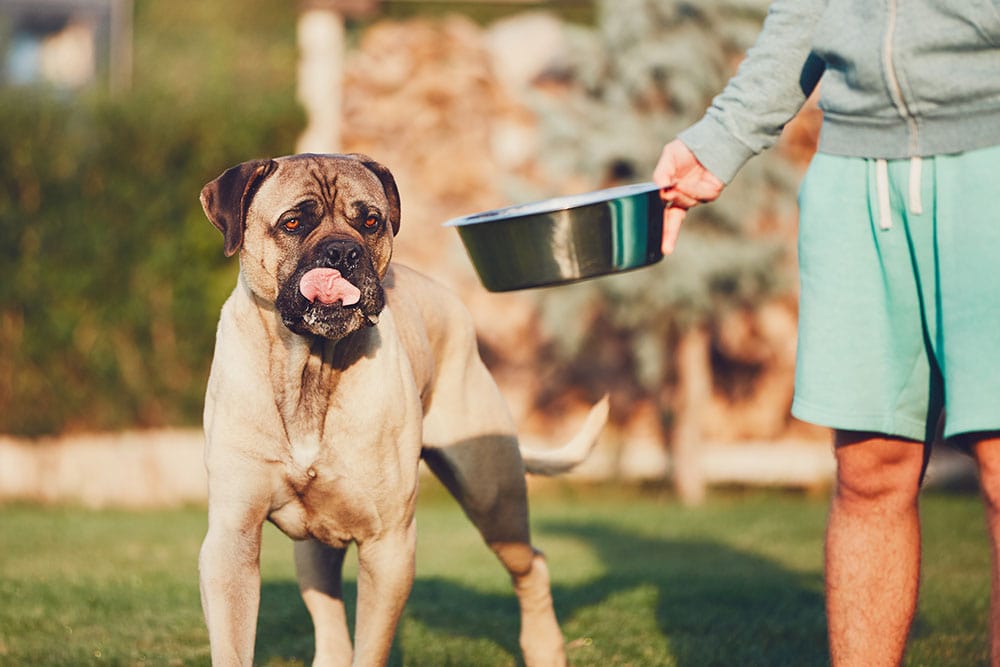
Cane Corsos are strong, healthy dogs. Still, they’re susceptive to the following diseases:
- Bloat (Gastric dilatation-volvulus)
- Hip dysplasia
- Idiopathic Epilepsy
- Demodectic Mange
- Eyelid Abnormalities
- Obesity
 Conclusion
Conclusion
Just like any other pet dog, Cane Corsos want to be loved and appreciated by their owners. And you can make them happy through positive reinforcement, regular training, and, of course, cuddling. While these big, heavy, and strong dogs aren’t very welcoming toward new faces, they do open up to people they trust. That’s why it’s so important to be affectionate with your Corso!
Don’t be afraid to show your emotions, encourage the pet with words and treats, and spend as much time with it as you can. Despite the fear-inducing look, the Italian mastiffs have kind, loving, and caring hearts. All you have to do is use the right approach and find new ways to make your bond stronger!
See Also:
Featured Image Credit: Jaromir Chalabala, Shuttetrstock

